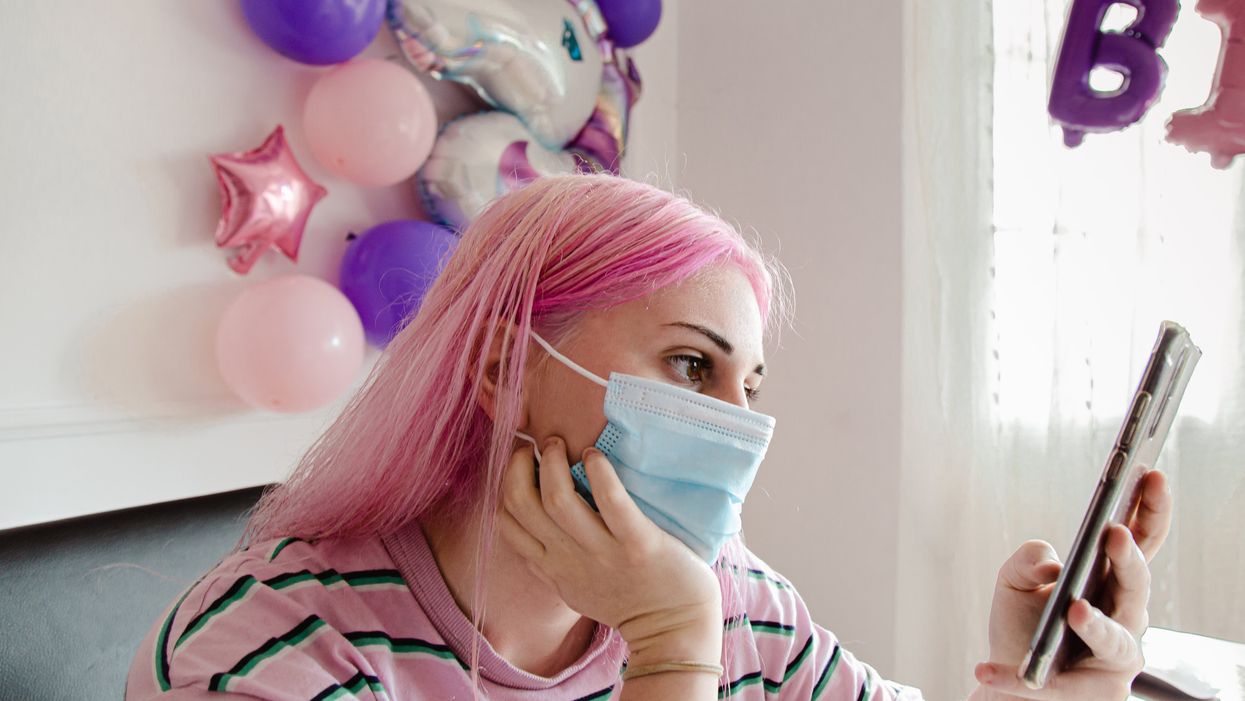Danielle Sinay
Sep 03, 2021
Young women across the globe are developing tics at alarmingly high rates, and it seems isolation from the pandemic — atop continuous scrolling on social media — might have something to do with it.
As first reported by VICE, referrals for these conditions skyrocketed from 1-5 per cent total cases prior to the pandemic, to 20-54 per cent now, according to research published in Movement Disorders.
Alex Turnquist, who first noticed her abnormal tic symptoms while in college, is still unsure what caused her twitching and tic-like symptoms, but took to TikTok after she realised she wasn’t alone with her symptoms.
@alexandrea.joy there’s a lot of UK newspapers reporting on how diagnoses have doubled in women this year has anyone else had this happen?
“So I developed a tic disorder during the pandemic, and I thought that it was Lexapro that did me in because there’s some research on that,” she said in the video, which has now been liked nearly 840 thousand times. “But I just learned that the isolation of the pandemic has been causing a massive outbreak of [tics] in girls.”
Indeed, research states that there is “a parallel pandemic of young people aged 12 to 25 years (almost exclusively girls and women) presenting with the rapid onset of complex motor and vocal tic-like behaviors,” and that “there have been striking commonalities in the phenomenology of these tic-like behaviors observed across our centers in Canada, the United States, the United Kingdom, Germany, and Australia.”
And there’s another peculiar parallel, as well. The patients they studied “all endorsed exposure to influencers on social media (mainly TikTok) with tics or [Tourette’s Syndrome],” even noting that in some cases, patients were able to specifically identify “an association between these media exposures and the onset of symptoms.”
@tic.tac.lotts this take ages to edit lmao #fyp #foryou #tics #tourettes #removeticsstigma #ticsandtourettes #normalisetics #makeup #britishteen
“This exposure to tics or tic-like behaviors is a plausible trigger for the behaviors observed in at least some of these patients, based on a disease modeling mechanism,” they continued.
This mysterious trend isn’t necessarily new. In July, a separate set of researchers studied TikTok influencers with Tics, concluding that TikTok tics were “distinct” from typical cals of Tourette’s. “We believe this to be an example of mass sociogenic illness, which involves behaviors, emotions, or conditions spreading spontaneously through a group,” they wrote in the paper titled, “TikTok Tics: A Pandemic Within a Pandemic.”
University of Calgary neurologists Tamara Pringsheim and Davide Martino also noticed the trend in the fall of 2020, recalling that the number of referrals for tic-related disorders began to balloon further in January of this year.
@alexandrea.joy or maybe, just maybe, it’s mental illness innit luv #mentalhealth #ratingthingschallenge #lexaprolesbian
“It’s an epidemic within the pandemic,” Martino told VICE, adding that the symptoms they’re seeing vastly differ from classical Tourette’s Syndrome. Not only are the new cases significantly more “extreme,” but the onset of symptoms started much later. What’s more, majority of the long women simultaneously report having anxiety and/or a mood disorders.
That said, it doesn’t mean these conditions aren’t “real,” they genuinely might not be able to stop. “Sometimes it’s a tough conversation, saying, ‘I don’t think you have Tourette’s Syndrome, I think you have these functional tic-like behaviors that have likely been triggered by the distress of the pandemic’—there’s some resistance or disappointment,” Pringsheim said.
“They cannot stop, and we have absolutely witnessed that,” Martino concurred. “Some of the patients and families we talk to are desperate; we need compassion and commitment to try and help them.”
Turnquist, who shares her experience with tics via TikTok, says some people doubt the validity of her claims. Yet she still hopes to spread awareness about her condition via the platform. “I feel like there’s a lot of really weird, backwards stigma on TikTok about tic disorders,” she said. “Like, you aren’t allowed to have one unless it’s this one.”
She also says she’s working on managing her triggers, but doesn’t necessarily have plans to stop watching and/or creating content for TikTok. And that’s OK.
“It is a bit unrealistic to ask people to de-expose from social media as a whole,” Martino said.
Top 100
The Conversation (0)














